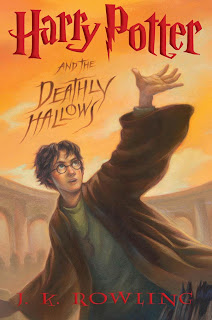
With the highly anticipated 7th Harry Potter being released, there has been a lot of press surrounding the book. One article I ran across in the New York Times gave me a few chuckles. If you are a Harry Potter Fan, you'll love the names Chinese Publishing Houses have come up with to knock of the genuine J.K. Rowling novels.
.....................
As in some other countries, there are the unauthorized translations of real Harry Potter books, as well as books published under the imprint of major Chinese publishing houses, about which the publishers themselves say they have no knowledge. And there are the novels by budding Chinese writers hoping to piggyback on the success of the series — sometimes only to have their fake Potters copied by underground publishers who, naturally, pay them no royalties.
No one can say with any certainty what the full tally is, but there are easily a dozen unauthorized Harry Potter titles on the market here already, and that is counting only bound versions that are sold on street corners and can even be found in school libraries. Still more versions exist online.
These include “Harry Potter and the Half-Blooded Relative Prince,” a creation whose name in Chinese closely resembles the title of the genuine sixth book by Ms. Rowling, as well as pure inventions that include “Harry Potter and the Hiking Dragon,” “Harry Potter and the Chinese Empire,” “Harry Potter and the Young Heroes,” “Harry Potter and Leopard-Walk-Up-to-Dragon,” and “Harry Potter and the Big Funnel.”
Some borrow little more than the names of Ms. Rowling’s characters, lifting plots from other well-known authors, like J. R. R. Tolkien, or placing the famously British protagonist in plots lifted from well-known kung-fu epics and introducing new characters from Chinese literary classics like “Journey to the West.”
Here, the global Harry Potter publishing phenomenon has mutated into something altogether Chinese: a combination of remarkable imagination and startling industriousness, all placed in the service of counterfeiting, literary fraud and copyright violation.
Wang Lili, editor of the China Braille Publishing House, which published “Harry Potter and the Chinese Porcelain Doll” in 2002, one of the Chinese knockoffs, said: “We published the book out of a very common incentive. Harry Potter was so popular that we wanted to enjoy the fruits of its widely accepted publicity in China.”